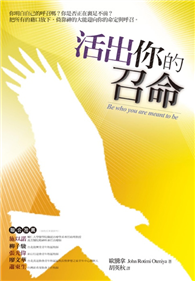Identifying an important subgenre of horror literature, this book argues that Catholic horror fiction works distinctively to inspire the philosophical, theological, and spiritual imaginations of readers from all backgrounds and faith traditions. Hurley analyzes four novels that are foundational to the genre of Catholic horror: J.K. Huysmans’s Là-Bas (1891), Robert Hugh Benson’s The Light Invisible (1903) and A Mirror of Shalott (1907), and William Peter Blatty’s The Exorcist (1971). Putting these texts in conversation with the classical liberal arts, the book shows how Catholic horror fiction coheres in a commitment to dialectical thinking that aims both to resolve--and to accommodate--contrasting world views. Given its use of this methodology, Catholic horror literature is uniquely positioned to draw readers into a contemplative mindset. In presenting ghost stories, tales of possession, and narratives about evil, Catholic horror invites audiences to confront and reflect on profound existential questions--questions about the line between life and death, the nature of being, and the meaning of reality.
| FindBook |
有 1 項符合
Catholic Horror and Rhetorical Dialectics的圖書 |
 |
Catholic Horror and Rhetorical Dialectics 作者:Hurley 出版社:Lehigh University Press 出版日期:2024-06-24 語言:英文 規格:精裝 / 212頁 / 普通級/ 初版 |
| 圖書館借閱 |
| 國家圖書館 | 全國圖書書目資訊網 | 國立公共資訊圖書館 | 電子書服務平台 | MetaCat 跨館整合查詢 |
| 臺北市立圖書館 | 新北市立圖書館 | 基隆市公共圖書館 | 桃園市立圖書館 | 新竹縣公共圖書館 |
| 苗栗縣立圖書館 | 臺中市立圖書館 | 彰化縣公共圖書館 | 南投縣文化局 | 雲林縣公共圖書館 |
| 嘉義縣圖書館 | 臺南市立圖書館 | 高雄市立圖書館 | 屏東縣公共圖書館 | 宜蘭縣公共圖書館 |
| 花蓮縣文化局 | 臺東縣文化處 |
|
|
圖書介紹 - 資料來源:博客來 評分:
圖書名稱:Catholic Horror and Rhetorical Dialectics
Postcolonial Stylistics
Postcolonial Stylistics
Chaucer’s Ethical Philosophy
Potter Stinks: Gender and Species in J. K. Rowling’s Harry Potter Series
Potter Stinks: Gender and Species in J. K. Rowling’s Harry Potter Series
Conjuring the Haint: The Haunting Poetics of Black Women
Conjuring the Haint: The Haunting Poetics of Black Women
Migration Literature in Translation: From U.S. Latinx Texts to Transnational Readers
Emporialism: Department Store Fictions and the Politics of the Mediterranean
Freedom Is Not Enough: T. S. Eliot for Liberation, Resistance, and Hope
Postcolonial Stylistics
Chaucer’s Ethical Philosophy
Potter Stinks: Gender and Species in J. K. Rowling’s Harry Potter Series
Potter Stinks: Gender and Species in J. K. Rowling’s Harry Potter Series
Conjuring the Haint: The Haunting Poetics of Black Women
Conjuring the Haint: The Haunting Poetics of Black Women
Migration Literature in Translation: From U.S. Latinx Texts to Transnational Readers
Emporialism: Department Store Fictions and the Politics of the Mediterranean
Freedom Is Not Enough: T. S. Eliot for Liberation, Resistance, and Hope
|








